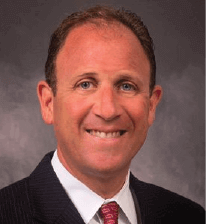 By Daniel H. Grace and Scott B. Cooper
By Daniel H. Grace and Scott B. Cooper
As Pittsburgh examines options for expanding access to quality pre-K programs across the city, we hope that Mayor Bill Peduto and Pittsburgh City Council avoid the serious pitfalls Philadelphia has fallen into.
Growing and supporting pre-K options for Pittsburgh children is a laudable goal — particularly for children who come from low-income families and can use the academic boost a quality program provides.
Yet Philadelphia’s mayor, Jim Kenney, and City Council chose to impose a new beverage tax on working families, saying it was necessary to pay for this new initiative.
While Philadelphia politicians sold the tax as a pain-free way of raising revenue, they have ignored the negative impacts of the tax on working families.
The city’s new 1.5 cents-per-ounce tax affects more than 4,000 beverages, including teas, energy drinks and healthier low-calorie and diet alternatives — even almond milk. It disproportionately affects lower-income families and has caused the cost of these items to skyrocket.
In some cases, the tax even exceeds the price of the product itself. A 2 liter bottle of a store-brand soft drink that used to cost 69 cents now costs $1.69.
The tax is already costing Philadelphia hundreds of good-paying union jobs in the grocery and beverage sectors as shoppers flee to the suburbs and sales plummet — particularly family-sustaining Teamster positions with good benefits. With beverage sales down by up to 50 percent in the city, beverage companies are being forced to slash routes and supermarkets are drastically cutting hours.
Even worse, this tax violates the Pennsylvania Constitution and the Sterling Act, which limits the taxing powers of Pennsylvania municipalities.
That’s why a bipartisan coalition of 38 lawmakers from across the commonwealth has come together to sign a brief urging the courts to strike down this unconstitutional tax. They recognize that this tax is bad tax policy and is harming Pennsylvanians.
The Commonwealth Court is set to take up a legal challenge to the tax brought by Philadelphia business, local bottlers and consumers Wednesday morning.
While Mr. Kenney pretends that beverage tax payments are being used to pay for new pre-K seats, the fact is that state law requires these revenues to be deposited directly into the city’s general fund — where they can be used for any purpose.
Just Friday, the city announced that a reassessment of commercial and industrial property will net the city and Philadelphia School District nearly $120 million more a year, which is more than enough to cover the cost of expanded pre-K.
Pittsburgh may indeed benefit from expanded pre-K. But there’s a right way and a wrong way to get there. A job-crushing, massive beverage tax isn’t it.
Daniel H. Grace is secretary-treasurer of Teamsters Local 830 based in Philadelphia ([email protected]). Scott B. Cooper is a partner at the Harrisburg law firm of Schmidt Kramer P.C. and a past president of the Pennsylvania Association for Justice ([email protected]). Mr. Cooper filed a brief on behalf of a bipartisan group of 38 state legislators opposed to the Philadelphia beverage tax.
Originally published in the Pittsburgh Post-Gazette.

